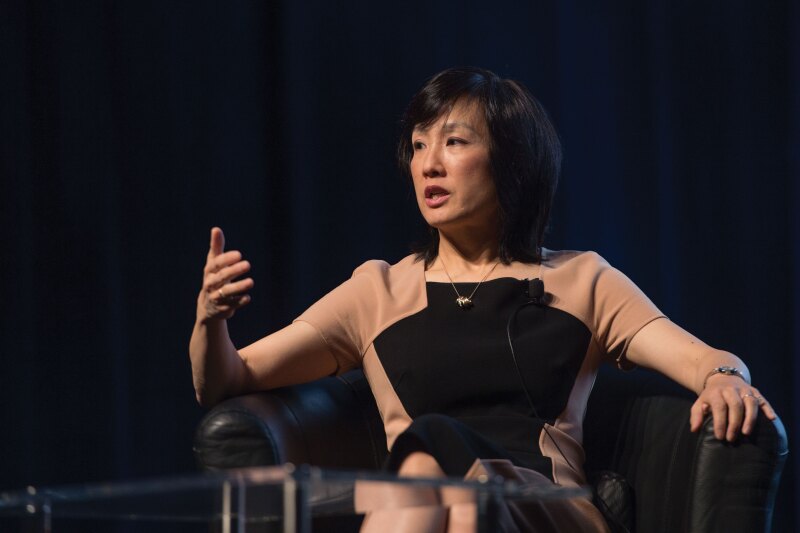
These included timely issuance of high-quality patents, ensuring Patent Trial and Appeal Board proceedings are fair, high quality and on time, and “integrating with our core mission” the USPTO’s regional offices in Dallas, Denver, Detroit and Silicon Valley. “We’ve embarked on an unprecedented quest for [patent] quality during my time as Director of the USPTO, and we will continue to do so,” said Lee.
The USPTO is transforming its review data capture process to improve analytical capability and consistency. “We are looking at ways to really revamp the review process,” she said.
Everyone from examiners to applicants to supervisors will be working off the same criteria and will be able to see and understand these criteria, which Lee said will lead to increased transparency and uniformity. “Moreover everybody who conducts the review will have their results recorded electronically,” Lee explained. “The net result is we are going to hold a lot more data about how we are doing as an agency. Our estimate is we will have between three to five times the number of data points that we currently have.”
She said the USPTO will use “big data” analytic techniques to learn from that data, and to provide fine-tuned feedback at a technology center level and examiner level, as opposed to the agency-wide training now. “So we will be much more strategic and much more targeted,” said Lee.
Regarding PTAB changes, Lee said recent efforts include: allowing patent owners to include new testimonial evidence with their opposition to a petition for institution; having a new certification requirement that will be a more robust means with which to police misconduct; clarifying when the PTAB will switch to using a district court claim construction if a patent is about to expire; and a proposal for a pilot program that would consider changing staffing of PTAB trials to make them more efficient.
Lee also took the chance to vent her frustration with the expansion of the scope of geographical indications earlier this year under the Geneva Act of the Lisbon Agreement. “At WIPO, in spite of the fact only one sixth of WIPO members agreed to it, it passed, and that was unfortunate,” said Lee. She said the USPTO has a twofold strategy of challenging the legitimacy of the Lisbon Agreement and developing an alternative that is more consistent with US law.
“We achieved two positive outcomes,” reported Lee. The first is the Lisbon Union is now on a path to financial independence, so US companies’ PCT fees will not help fund it. “Secondly, working with other countries we were able to get the WIPO Standing Committee on Trademarks to work on an alternative to the Lisbon Agreement that is more in line with US thinking on geographical indications,” said Lee.










